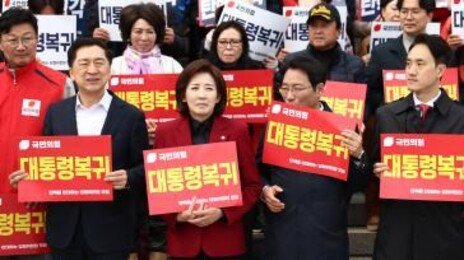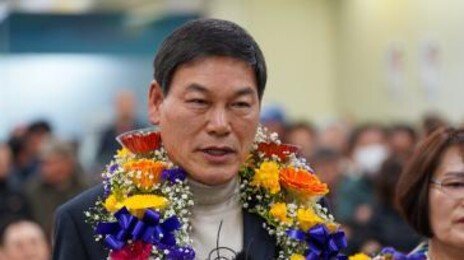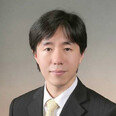구체적 내용 없는 ‘센토사 합의’후 트럼프 美 대통령은 화려한 퇴장
향후 북한과의 지난한 협상 과정, 트럼프는 관심 없다고 봐야 할 듯
문재인 대통령 남북관계 주도하겠지만 불만 많은 보수도 설득하며 가야

트럼프 대통령이 싱가포르에서 김정은 위원장을 만났다. 남한은 흥분을 감추지 못했다. 긴장 완화 분위기에 고조되었다. ‘센토사 합의’는 세계평화의 토대를 세운 것과 같다고 문대통령은 말했다. 그러나 이는 명백히 자아 과잉 트럼프 대통령을 위한 문대통령의 또 다른 칭찬일 뿐이다.
상당히 포괄적이었던 센토사 합의는 판문점 선언 등에서 확인했던 북한의 비핵화 약속을 또 다시 반복했다. 구체적 사안도, 액션 플랜도 없었다. 트럼프 대통령의 극찬에도 불구하고 큰 진전을 보여주지 못했다. 북한이 센토사 합의로 무엇을 할지는 그 누구도 알 수 없다. 훨씬 더 많은 협상을 주장하면서 아무 것도 이행하지 않을 수도 있다.
그러나 문재인 정부는 북미정상회담을 통해 정말 중요한 무언가를 얻었다. 트럼프 대통령이 한반도 평화 프로세스의 중심에서 한 발짝 비켜선 것이다. 문대통령은 이제 북한 문제를 자신의 뜻대로 다룰 수 있게 되었다.
트럼프 대통령은 화려한 행사를 통해 전세계적 주목을 받았다. 모호하면서도 긍정적인 언어로 수사된 센토사 합의를 통해 문대통령은 본인의 입맛대로 밀고 나갈 수 있는 많은 재량권을 얻게 되었다. 트럼프 대통령은 이번 합의를 통해 자국의 보수 미디어에서 이미 했던 것처럼 미국 국민들 앞에서 승리를 선언했고 그 후 이 프로세스에서 발을 뺐다. 트럼프 대통령은 세부 정책은 전혀 신경 쓰지 않는 게으른 사람이다. 북한과의 회의와 협상이라는 기나긴 고투는 그의 관심사가 아니다. 그는 이번 회담에 대한 준비를 충분히 하지 못했다고 시인했고 폼페이오 국무장관이 대부분의 일을 떠맡아 했다.
트럼프 대통령이 이번 무대에서 자발적으로 퇴장함으로써 문대통령은 큰 정치적 재량을 얻게 되었다. 이에 대한 평가는 북한에 대해 어떤 정치적 견해를 갖고 있느냐에 따라 달라진다. 진보주의자들과 온건파는 이러한 상황을 흡족해 할 것이다. 지난 해 트럼프 대통령은 위협적으로 전쟁 가능성을 시사했다. 올해 그는 자신이 노벨 평화상 수상 자격이 있다고 쉽게 생각하고 있다. 그가 향후 또 어떤 말을 할지는 그 누구도 장담할 수 없다. 트럼프 대통령은 변덕스럽고 예측불가하며 세부 정책에 신경 쓰지 않는 사람이다. 자신의 관심 사안이 아니기에, 올해 한반도 데탕트를 이끌어 갈 구체적 내용을 갖고 있지 못하다. 돌출행동, 인종차별, 급격한 정책 선회와 같은 그의 성향은 한반도 평화 프로세스에 끊임없이 위협이 되어왔다. 이 프로세스에서 트럼프 대통령이 자연스럽게 후퇴할 때 문대통령은 추구하는 바를 실행할 수 있게 된다.
민족주의자들 또한 이러한 상황을 만족스럽게 생각할 것이다. 이들은 미국이 한반도 문제에 유별나게 간섭해왔다고 생각한다. 애초에 한반도가 분단된 것이 미국 때문이라고 여기는 이들이 많다. 또한 이승만과 박정희의 탄압은 일정 정도 미국의 묵인 하에서 이뤄졌다. 궁극적으로 남북 분단은 한국의 문제이기 때문에 남북이 스스로 해결해야 하는 것이다. 미국, 중국, 일본, 러시아, UN 등 주변국들은 한반도 문제에 대해 주어진 역할이 있다 하더라도 조연 선에서 그쳐야 한다. 민족주의자들은 트럼프 대통령이 남한 정부와 논의하려는 시도조차 하지 않고 전쟁을 언급했던 바로 지난 해와 같은 상황을 두려워한다. 외부의 힘에 의해 한반도에 원치 않는 충돌이 발생하는 부분을 우려하는 것이다.
이러한 보수 유권자들에게 진보주의자들의 대북정책을 압박하는데 한미동맹만큼 중요한 것은 없다. 미국은 북한에 대해 오랫동안 남한보다 더 강경한 입장을 유지해왔다. 이상적 관점에서 북한 붕괴와 남한 주도 통일을 이끌 대북제재 정책은 미국의 강력한 지원 없이는 불가능하다. 그렇기 때문에 보수주의자들은 종종 미국 대통령 이름이 쓰인 티셔츠를 입고 성조기를 흔들며 시위에 나선다. 이들은 문대통령이 재량권을 갖게 된 것을 우려하기 때문에 한반도 평화 프로세스에서 효과적으로 발을 빼려는 트럼프 대통령의 결정에 실망을 금치 못할 것이다.
민족주의자들의 주장에 의하면 트럼프 대통령이 이 프로세스에서 후퇴한 것은 보편적 관점에서 다행스러운 일이다. 남북은 실질적으로 한반도 운전자석에 앉아야 한다. 지난 해 트럼프 대통령은 한반도 문제를 너무 미국식으로 몰아붙였다. 하지만 문대통령이 북미정상회담 후 트럼프 대통령으로부터 위임 받은 재량권을 지나치게 과대평가할 가능성에 우려를 표하지 않을 수가 없다.
문대통령에 대한 지지율이 80%를 넘는 것은 사실이지만 대선 득표율은 41%였다는 사실을 기억해야 한다. 놀랍게도 지지율이 1년 만에 두 배가 되었지만 국내적 요인은 이러한 결과에 거의 영향을 미치지 못했다. 현재의 높은 지지율은 지난 해 트럼프 대통령의 위협적인 발언에 대해 국민들이 느낀 엄청난 두려움이 반영된 결과라고 봐야 할 것이다. 평창올림픽 개최 직전까지 한국인들은 김정은 위원장보다 트럼프 대통령을 더 두려운 존재로 인식했다. 그러나 트럼프 대통령이 한반도 무대로부터 퇴장하는 상황에서 현재의 지지율이 얼마나 갈 수 있을지 의문이다.
지난 대선에서 중도와 보수 후보의 단일화가 이루어졌다면 문재인 대통령의 당선은 어려웠을 것이다. 한반도 긴장 완화에 반대하는 민족주의자, 보수주의자, 기독교인, 친미주의자는 보이지 않는 곳에 깊이 존재한다. 너무나 관대하면서도 극적인 문재인 대통령의 대북정책이 국민들의 반발을 불러일으키지 않을까 우려스럽다. ‘박근혜 퇴진’을 요구하며 백만 명의 진보주의자들과 중도주의자들이 거리로 나섰던 것처럼 문대통령의 대북정책을 저지하기 위한 거리 시위가 벌어질 수도 있다.
로버트 켈리 객원논설위원·부산대 정치외교학과 교수
▼원문 보기▼
“The Empty Trump-Kim Summit Turns Korean D¤tente over to Moon”
Earlier this week, US President Donald Trump met North Korean leader Kim Jeong Un in Singapore. There has been much excitement in South Korea. South Koreans are upbeat about this year‘s d¤tente. South Korean President Moon Jae In said the Sentosa Declaration laid no less than the foundations of world peace, yet another obvious Moon flattery of Trump’s oversized ego.
The declaration was fairly generic, a rehash of previous North Korean denuclearization commitments such as April‘s Panmunjom Declaration. There is no detailed commitment in it to anything specific, no action plan. It is not a breakthrough, despite Trump’s penchant for glowing rhetoric. Who knows what the North Koreans will do with it? Likely nothing, insisting on yet further negotiation.
But the South Koreans, or rather the Moon administration, did win something quite important in Singapore: Trump has now sidelined himself from the Korean d¤tente process. Moon can now run North Korean engagement as he sees fit.
As South Korea‘s only ally, Moon had to bring the Americans into any meaningful Korean d¤tente. That box had to be checked; that formality has to be wrapped up before Moon could drive forward a serious rapprochement agenda with the North. Gently easing Trump out of the process is likely why Moon pushed so hard for the summit to be held so fast, even as it became very apparent that Trump and the Americans were grossly unprepared. Moon’s point was not for the Americans to bring back some great deal from Singapore ¤ three months was far too little time for that ¤ but to satisfy the basic requirement of American participation and then move on.
And that was done. Trump got his pageantry and global publicity. The Sentosa Declaration was full of vague, positive language, which leaves much discretion for Moon to push forward however he chooses. The declaration allows Trump to declare victory before his domestic audience ¤ as he has already done in conservative, Trumpist media in the US - and then drop the issue. Trump is lazy and disdains policy detail; a long slog of meetings and negotiation with the DPRK does not interest him. He admitted that he did not prepare much for the summit, and most of the work was dumped on Secretary of State Mike Pompeo.
Trump‘s voluntary exit opens wide political space for Moon. Whether this is a good thing or not depends on one’s North Korea politics. Liberals and doves will be elated. Last year Trump threatened to start a war. This year he briefly thought he deserved a Nobel Peace Prize. Who knows what he will say next? Trump is erratic, unpredictable, and disengaged from policy detail. He has little concrete to offer this year‘s d¤tente, because he does not really care about it, and his penchant for zany outbursts, racism, and dramatic policy u-turns perpetually threatened the peace process. With Trump politely removed from the process, Moon can do as he pleases.
Nationalists too will be pleased. To them, the US has always been a curious, if not unwanted, interloper in Korean affairs. The initial division of the peninsula is blamed by many on the Americans. The repression of Syngman Rhee and Park Chung Hee also enjoyed a certain level of tolerance from US officials in Korea. Ultimately, the inter-Korean division is a Korean issue, to be resolved by Koreans on their own terms. Outsiders, including the US, China, Japan, Russia, the United Nations, and so on, really should be playing only a supporting role, if any role at all. Trump’s threats last year to start a war without even bothering to consult the South Korean government are exactly what nationalists fear: an outside power dragging Koreans into an unwanted conflict.
Conservatives and North Korea hawks though will worry about this early American drop out from the process. They worry that Moon is too willing to cut a deal with North Korea. Indeed, the South Korean right is slipping into a paranoia over this year‘s peace process with dark rumors of a soft coup by the Moon government and conspiracy theories about Im Jeong Seok. To these voters, Moon is not a Gandhian peacemaker, but an appeaser like Neville Chamberlain. They fear Moon will give North Korea a lot in exchange for very little.
To these conservative voters, the US tie is critical to blunting the left’s engagement policy. The US has long been more hawkish than South Korea regarding North Korea. These voters‘ preferred policy of containing and deterring North Korea, followed ideally by its implosion and Southern-led unification, is impossible without strong US support. This is why these voters often protest clothed in Donald Trump t-shirts and waving American flags. Trump’s decision to effectively quit this year‘s process will disappoint these voters, because the liberal Moon now has a free hand.
Per the nationalist argument, Trump’s recession form the scene is a good thing in a general sense. The two Koreas should indeed by in the driver‘s seat on relations. Last year, Trump wildly over-Americanized the Korean debate. But I fear Moon will overplay the free hand Trump has given him this week.
It is true that Moon’s approval rating exceeds 80%. But it is also true that Moon only won with 41% of the vote. Moon has done little domestically to justify an astonishing doubling of his approval rating in just a year. His current rating is almost certainly due to South Koreans‘ tremendous fear of Trump’s 2017 rhetoric. By the time of the Olympics, South Koreans feared Trump more than Kim. But I wonder how durable that support will be as Trump fades away.
Had the centrist and conservative candidates last year collaborated, Moon would not be president. There is a deep reservoir of nationalist, conservative, Christian, and pro-American thinking in South Korea opposed to d¤tente. I fear a dramatic, extremely generous Moon offer to North Korea may provoke a civil backlash. In the same way that a million centrist and leftist South Koreans hit the streets last year to bring down Park Geun Hye, I could see similar street mobilizations to block a Moon deal.
Moon‘s path to a North Korean deal is now easer. Trump has dropped the issue. But Moon should be cautious of a pursuing a revolution in North Korea policy. South Korea is still a deeply divided society on North Korea, and Moon will need to win over at least moderate conservative voters who fear the orwellian North.
Robert E Kelly (@Robert_E_Kelly) is a professor of international relations in the Department of Political Science and Diplomacy at Pusan National University. More of his work may be found at his website,AsianSecurityBlog.wordpress.com.
동아광장 >
구독
이런 구독물도 추천합니다!
-

딥다이브
구독
-

오늘의 운세
구독
-

금융팀의 뱅크워치
구독
-
- 좋아요
- 0개
-
- 슬퍼요
- 0개
-
- 화나요
- 0개
![[동아광장/박원호]김상욱은 한국 보수의 미래다](https://dimg.donga.com/a/180/101/95/2/wps/NEWS/IMAGE/2025/03/31/131322788.1.png)




댓글 2
추천 많은 댓글
2018-06-16 22:21:32
함부로 그런 운전대 잡다간 무슨 소리 들을런지 궁금 하네요.
2018-06-17 20:07:47
<동아광장>잘 읽고 있습니다. 지난 6월12일 싱가포르 센토사에서의 두 狂信者 만남, 비전문가 나의 눈에는 희극적으로 보입니다. '센토사 합의' 후 전개될 한반도 미래를 예측하는 필자의 관점, 예리하고 훌륭하다 생각합니다. '로버트켈리'교수님, 칼럼 글 지지합니다!!!